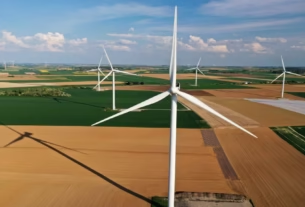In Short : India-manufactured Alstom trains are poised to facilitate New Zealand’s transition to a greener rail system, thereby promoting sustainable public transportation. These modern, energy-efficient trains will help decrease carbon emissions, enhance the passenger experience, and showcase India’s expanding influence in global clean mobility initiatives and eco-friendly rail infrastructure.
In Detail
The Alstom trains produced in India are set to be instrumental in New Zealand’s shift towards sustainable rail, representing a significant achievement in clean mobility. This project emphasizes India’s growing role in global green transportation and reinforces bilateral collaboration.
Engineered and constructed in India, these trains utilize cutting-edge technology to improve efficiency, reliability, and passenger comfort. Their energy-efficient features will markedly reduce carbon emissions by replacing older, less efficient models, thereby supporting New Zealand’s climate and decarbonization objectives.
This initiative aligns with New Zealand’s comprehensive strategy to lessen reliance on fossil fuels and promote renewable energy-powered transportation. Modernizing the rail system is a crucial step towards achieving sustainable public mobility and reducing emissions.
For India, this accomplishment illustrates its increasing capacity to produce top-tier green transportation technologies, establishing the nation as a reliable partner in sustainable infrastructure development. The manufacturing process also emphasizes skill enhancement, innovation, and global engineering excellence within India’s industrial landscape.
Once operational, passengers in New Zealand can anticipate improved rail services, featuring smoother operations, environmentally friendly designs, and enhanced comfort, all contributing to a superior travel experience.
The introduction of India-made trains highlights the importance of international cooperation in promoting clean technologies, expediting the global adoption of sustainable transportation solutions, and effectively tackling climate change.




